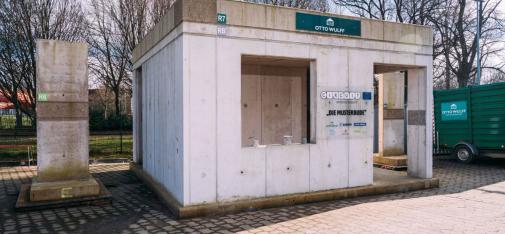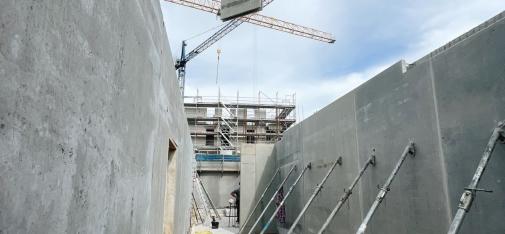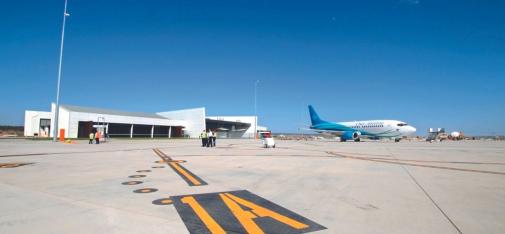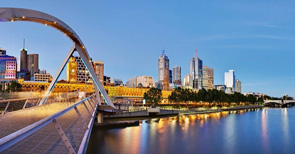General and mandatory information
MC-Bauchemie takes the protection of your personal data very seriously. We treat your personal data as confidential and in accordance with the statutory data protection regulations and this privacy policy.
Party responsible
The party responsible on this website is:
MC-Bauchemie Müller GmbH & Co. KG
Müllerstraße 1-8
46238 Bottrop
Germany
Phone: +49 (0) 2014 101-0
Fax: +49 (0) 2014 101-400
E-Mail: info(a)mc-bauchemie.de
Data protection officer
We have appointed a data protection officer for our company:
Andreas Kuczera
Data protection officer of MC Group
Phone: +49 (0) 20 41 101-0
Fax: +49 (0) 20 41 101-400
E-Mail: dsb(a)mc-bauchemie.de
Data collection on our website
Cookies
Some of our web pages use cookies. Cookies do not harm your computer and do not contain any viruses. Cookies help make our website more user-friendly, efficient, and secure. Cookies are small text files that are stored on your computer and saved by your browser.
Most of the cookies we use are so-called "session cookies." They are automatically deleted after your visit. Other cookies remain in your device's memory until you delete them. These cookies make it possible to recognize your browser when you next visit the site.
You can configure your browser to inform you about the use of cookies so that you can decide on a case- by-case basis whether to accept or reject a cookie. Alternatively, your browser can be configured to automatically accept cookies under certain conditions or to always reject them, or to automatically delete cookies when closing your browser. Disabling cookies may limit the functionality of this website.
Cookies which are necessary to allow electronic communications or to provide certain functions you wish to use are stored pursuant to Art. 6 Paragraph 1, (f) of GDPR. The website operator has a legitimate interest in the storage of cookies to ensure an optimized service provided free of technical errors. If other cookies (such as those used to analyze your surfing behavior) are also stored, they will be treated separately in this privacy policy.
Transmission to third countries outside the European Economic Area is not intended (with the exception of cookies from external components for which this is expressly stated).
Server log files
We automatically collect and store information in so-called server log files based on our legitimate interest (Art. 6 Paragraph 1 (f) GDPR), which your browser automatically transmits to us. These are:
- Browser type and browser version
- Operating system used
- Referrer URL
- Host name of the accessing computer
- Time of the server request
- IP address
These data will not be combined with data from other sources. The server log files are stored for a maximum of 7 days and then deleted. The storage of the data is done for security reasons, e.g. to clarify cases of abuse. If data must be revoked for reasons of proof, they are excluded from the deletion until the incident has been finally clarified. For this period, processing is restricted.
Contact forms
We offer you a contact form to contact us on a voluntary basis online. As part of the contact form, we collect personal data (name, first name, address data, telephone numbers, e-mail address), the topic and the content of your message as well as brochures requested by you.
We use this data to answer your request. By processing the data, we have a legitimate interest in responding to your inquiries (Art. 6 Paragraph 1 (f) of the GDPR). In addition, we are required to keep records based on commercial and fiscal regulations (Art 6 Paragraph 1 (c) of GDPR).
The data is passed on to our hosting service provider who hosts the website on our behalf. A passing on to third does not take place. We plan to keep the above data for a period of 10 years and then delete it. Transmission to third countries outside the European Economic Area is not intended.
Google Analytics
This website uses Google Analytics, a web analytics service. It is operated by Google Inc., 1600 Amphitheatre Parkway, Mountain View, CA 94043, USA. Google Analytics uses so-called "cookies". These are text files that are stored on your computer and that allow an analysis of the use of the website by you. The information generated by the cookie about your use of this website is usually transmitted to a Google server in the USA and stored there. Google Analytics cookies are stored based on Art. 6 Paragraph 1(f) GDPR. The website operator has a legitimate interest in analyzing user behavior to optimize both its website and its advertising.
IP anonymization
We have activated the IP anonymization feature on this website. Your IP address will be shortened by Google within the European Union or other parties to the Agreement on the European Economic Area prior to transmission to the United States. Only in exceptional cases is the full IP address sent to a Google server in the US and shortened there. Google will use this information on behalf of the operator of this website to evaluate your use of the website, to compile reports on website activity, and to provide other services regarding website activity and Internet usage for the website operator. The IP address transmitted by your browser as part of Google Analytics will not be merged with any other data held by Google.
Browser Plugin
You can prevent these cookies being stored by selecting the appropriate settings in your browser. However, we wish to point out that doing so may mean you will not be able to enjoy the full functionality of this website. You can also prevent the data generated by cookies about your use of the website (incl. your IP address) from being passed to Google, and the processing of these data by Google, by downloading and installing the browser plugin available at the following link:
https://tools.google.com/dlpage/gaoptout?hl=en
Objecting to the collection of data
You can prevent the collection of your data by Google Analytics by clicking on the following link. An optout cookie will be set to prevent your data from being collected on future visits to this site:
Disable Google Analytics
For more information about how Google Analytics handles user data, see Google's privacy policy:
https://support.google.com/analytics/answer/6004245?hl=en
Outsourced data processing
We have entered into an agreement with Google for the outsourcing of our data processing and fully implement the strict requirements of the German data protection authorities when using Google Analytics.
You Tube
Our website uses plugins from YouTube, which is operated by Google. The operator of the pages is YouTube LLC, 901 Cherry Ave., San Bruno, CA 94066, USA. If you visit one of our pages featuring a YouTube plugin, a connection to the YouTube servers is established. Here the YouTube server is informed about which of our pages you have visited. If you're logged in to your YouTube account, YouTube allows you to associate your browsing behavior directly with your personal profile. You can prevent this by logging out of your YouTube account. YouTube is used to help make our website appealing. This constitutes a justified interest pursuant to Art. 6 Paragraph 1 (f) GDPR. Further information about handling user data, can be found in the data protection declaration of YouTube under https://www.google.de/intl/de/policies/privacy.
Revocation of your consent to the processing of your data
Some data processing operations are only possible with your express consent. You may revoke your consent at any time with future effect. An informal email making this request is sufficient. The data processed before we receive your request may still be legally processed.
Right to file complaints with regulatory authorities
If there has been a breach of data protection legislation, the person affected may file a complaint with the competent regulatory authorities. The competent regulatory authority for matters related to data protection legislation is:
Landesbeauftragte für Datenschutz und Informationsfreiheit NRW, Düsseldorf.
Right to data portability
You have the right to have data which we process based on your consent or in fulfillment of a contract automatically delivered to yourself or to a third party in a standard, machine-readable format. If you require the direct transfer of data to another responsible party, this will only be done to the extent technically feasible.
Information, correction, blocking, deletion
As permitted by Art. 15 GDPR, you have the right to be provided at any time with information free of charge about any of your personal data that is stored. You also have the right to have this data corrected, blocked or deleted.






